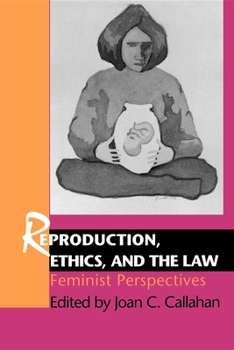Reproduction, Ethics and the Law: Feminist Perspectives
Select Format
Select Condition 
Book Overview
"Scholars already saturated with moral commentary on new reproductive arrangements are in for a stimulating surprise. For, this volume breaks new ground, scrutinizing their impact at a more penetrating level and challenging the terms of the dominant debate. . . . It should set a standard for further work and receive the attention of mainstream thinkers and policy makers that it so richly deserves." --Human Studies
". . . a valuable contribution to the literature in an important and rapidly evolving area of law and applied ethics." --Ethics
". . . virtually every essay is thought-provoking and well-informed, and together they address just the topics you'd want to see covered--as well as a few you might not have thought of." --Medical Humanities Review
". . . extremely interesting reading for all those who are involved in, or wish to know more about, the moral, social and policy consequences of new reproductive technologies." --Biosocial Science
"This thought-provoking collection of essays addresses moral and legal questions revolving around modern human reproduction. . . . an invaluable resource for any family law practitioner." --The Women's Advocate
"Editor Callahan presents a fascinating look at the facts, facets, and legal effects of modern technology on reproduction. . . . A work that provides insight on all issues concerning reproduction." --Choice
" The book] is a valuable contribution to the literature in an important evolving area of law and applied ethics." --Ethics
". . . displays the richness of feminist scholarship. It points the way for a fuller appreciation of the varied voices of feminist analyses in many other areas." --Journal of Health Politics, Policy and Law
". . . a comprehensive, compelling and carefully researched volume. This is applied feminist ethics at its very impressive best." --Journal of Medical Ethics
Essays address moral and legal quandaries related to human reproduction, adding to the feminist dimension of the public discussion of these issues, including: new complexities in contraception and abortion technologies; frozen embryos, unwed fathers, and the legal definition of parenthood; and the use of fetal tissue.





